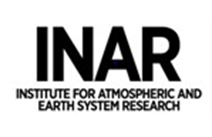TRAnsferable Knowledge and Technologies for high-resolution environmental impact assessment and management (TRAKT-2018)
Scope: The majority of Nordic population is residing in complex urban environment. The concentrated emission of air pollutants, anthropogenic landscape and local climate modifications are lasting and have distant, often transboundary impact. The holistic task of the science-based environmental management, urban planning and climate change adaption requires increasingly accurate quantitative information, which is provided timely and at the user-relevant scales. This project is sought as indispensable step towards implementation of such an integrated information resource. Key elements of the proposed innovative technology have been already tried and they are in line with the general trend of model resolution and sophistication refinements, but distinct and advantageous in the way it approaches the observations and the turbulence mixing. The project will integrate citizen observations, remote sensing products and turbulence-resolving urban modeling with the regional climate downscaling and climate change scenarios.
Activities: to enabling a customer-target climate services and to implement the approach in the concrete demonstration case of Apatity-Kirovsk region (Murmansk Oblast) of Russia.
The preparation work; including the starting workshop, applied end-user seminars and data collection, will serve to set the demonstration case in the most relevant way. The follow-up work will inform the potential industrial customers, authorities and larger Pan-Eurasian Experiment PEEX research community about the new approach, technological solutions and achievements. Using the connections with the Universities and research organizations in Norway, Finland, and Russia as well as the educational bases at Kola Peninsula, the project includes also an essential educational component. Students will be involved at all project stages as well as in the core field and modeling work. The project will support the participation of students and young researchers in the PEEX activity, Russian and Scandinavian summer schools and selected courses in applied climatology.
Expected project results: contributing to the work towards new climate standards for high latitude regions. Presently, such standards for construction, urban management, infrastructure maintenance and operation do not include the local climate diversity aspects as well as the state-of-the-art understanding of the turbulent processes in the cold climates and climate change scenarios.
Duration of the project: 2018
Project coordinator & contact information:
Dr. Igor Esau, Nansen Environmental and Remote Sensing Center (NERSC, Bergen, Norway)
- E-mail: This email address is being protected from spambots. You need JavaScript enabled to view it.
- Phone: +47 473 99 690
- https://www.nersc.no/staff/igor-ezau
Project partners:
- NERSC - Nansen Environmental and Remote Sensing Center (Bergen, Norway)
- UHEL - University of Helsinki, Department of Physics, Division of Atmospheric Sciences (Helsinki, Finland);
- NIERSC - Nansen International Environmental and Remote Sensing Centre (St.Petersburg, Russia);
- KSC - Kola Science Center, Russian Academy of Science (Apatity, Murmansk region, Russia);
- SRCES - Science Research Center for Ecological Safety, , Russian Academy of Science (St. Petersburg, Russia);
Funding: "Programme for Environment and Climate Co-operation (PECC) – Nordic pilot programme for co-operation projects in North-West Russia" funded by the NMC (Nordic Council of Ministers) & administered by the NEFCO (Nordic Environment Finance Corporation)
Project report: 2nd period reporting for the TRAKT-2018 project. INAR-UHEL 3rd period reporting. INAR-UHEL 4th period reporting. INAR-UHEL final reporting (with contributions from all periods)
More information and results of the TRAKT project are available at the official website.




